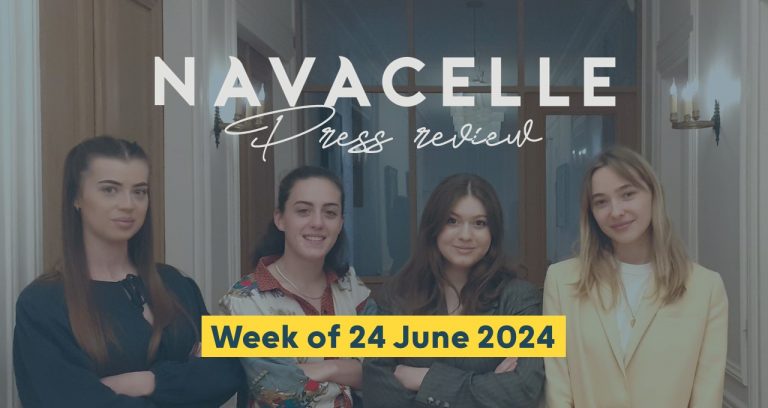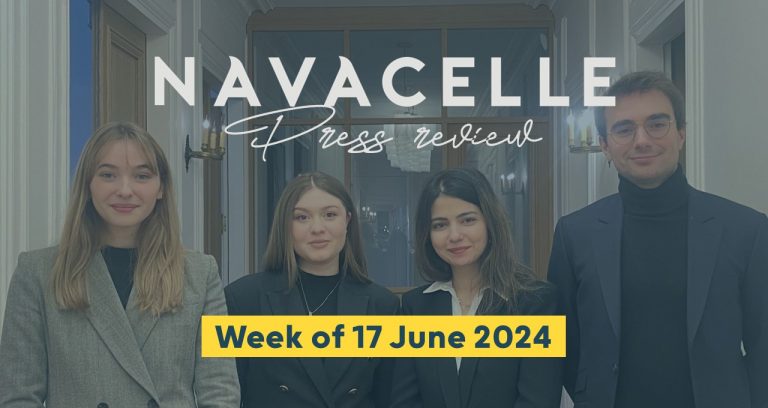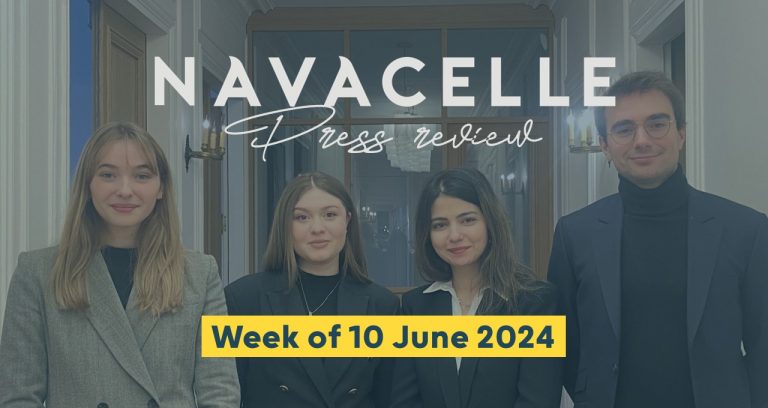The President of the Paris Judicial Tribunal validated on Friday, December 17th, the Judicial Public Interest Agreement (“CJIP”) between the Public Prosecutor and LVMH Moët Henessy – Louis Vuitton (“LVMH”) for acts originating from a former LVMH consultant, Mr. Bernard Squarcini, and ordered LVMH to pay a public interest fine of 10 million euros.
This fifteenth CJIP concluded in four years, only a few months after the one concluded by JPMorgan Chase Bank, National Association, is further evidence of the practice of negotiated justice in white collar crime. This transaction bears witness to renewed criticisms of this mechanism, especially regarding the victims and regarding the natural persons being investigated.
I. The CJIP concluded between the Public Prosecutor and LVMH allowed the latter to avoid admitting guilt for the actions undertaken by its former consultant, Mr. Bernard Squarcini
The facts behind this CJIP would have all been committed by Mr. Bernard Squarcini, former head of the French Domestic Intelligence Agency (“DGSI”) from 2008 to 2012, who later became a private consultant for LVMH in 2013 through his consulting company, KYRNOS CONSEIL. He was hired to consult and assist in various fields such as the fight against counterfeiting, parasitism, or protection against industrial espionage[1].
On the one hand, several actions during his consulting mission for LVMH are being held against him, namely:
- Influence peddling, disclosure of information covered by professional secrecy and confidentiality of investigations and concealment of such disclosure, for having used his influence over public authorities (judiciary police, magistrates, the DGSI and authorities at Le Bourget airport) in order to obtain information on proceedings involving LVMH and to facilitate administrative procedures[2].
- Complicity in the fraudulent collection of personal data, illegal exercise of regulated professions (private security and private research agents) and invasion of privacy, for having, together with Mr. Pierre Godé, former Vice President and director of LVMH, spied on FAKIR association using the company 12F, which had contracted with the company JCB CONSULTING that had informants within FAKIR association. This occurred during the production of the satirical documentary “Merci Patron!“, which covered the dismissal of a couple by a LVMH subcontractor for relocating abroad[3].
On the other hand, Mr. Squarcini is also accused of breach of trust committed in 2008, while being the head of the of the French Domestic Intelligence Agency, for having mobilized his units to investigate allegations of blackmail regarding LVMH[4].
It must be noted that all of the facts and qualifications laid down by the Public Prosecutor in the CJIP are described exclusively through the actions of Mr. Bernard Squarcini, and that it is clearly stated: “the facts in the matter […] are likely to concern LVMH“.
At no point does the wording of the CJIP describe and legally qualify the facts for which the legal person is being investigated, even though it is a party and signatory. Although the CJIP mechanism only applies to a limited number of offenses[5], the exact qualification can only be found in the validation decision: “LVMH -Moët Henessy – Louis Vuitton (…) [is being] investigated for influence peddling“[6].
The CJIP also states that the “agreement covers all the facts, including related facts, that may be imputed to LVMH for the period 2008-2016, which have been brought to the attention of the Public Prosecutor’s Office and the investigating magistrates during the judicial investigation”[7]. Thus, it appears that this agreement covers facts over a period of eight years, for which no details are provided, and simply refers to the judicial investigation.
II. The CJIP concluded between the Public Prosecutor and LVMH sanctioned the latter to pay a public interest fine of 10 million euros
Pursuant to the CJIP, LVMH was only fined 10 million euros, as some of the victims did not claim any damages or made claim over damages that could not be compensated[8]. The theoretical maximum amount of the public interest fine was estimated at more than 14 billion euros[9].
Such decrease from the theoretical amount is explained by the uncertainty of the benefits that LVMH drawn from the breaches observed[10], coupled with the long-standing nature of the facts at hand, the overhaul of the group’s legal, ethics and public affairs organization, and the strengthening of the ethics and compliance framework, especially with the recruitment of a director in charge of these issues who has significant material and financial resources[11].
In its validation decision, the President of the Paris Judicial Tribunal highlighted the company’s cooperation and the means implemented to prevent the reiteration of similar acts. She noted that LVMH had produced exhibits related to its organization, to the creation of the Ethics and Compliance department, and to the measures and procedures set up[12], thus showing once again the importance of a governance approach that is concerned about breaches of probity, as well as the importance of setting up compliance programs within companies.
The amount of the public interest fine imposed on LVMH has nevertheless been criticized by some as it only represented “02% of LVMH’s turnover“[13], despite the legal limit for this fine is 30% of the average annual turnover calculated on the basis of the last three known annual turnovers[14]. Others welcome such amount as it was much higher than the one that could have been imposed on LVMH in the event of a criminal conviction[15]. Indeed, influence peddling is punished under Article 433-12 of the French Criminal Code by a fine of 500,000 euros, which can be increased to twice the amount of the proceeds of the offence[16] and five times higher when the offence is committed by legal entities[17].
III. The conclusion of this CJIP once again questions the scope of the victims’ rights and the possible consequences for physical persons implicated in the facts recognized by the legal person
This CJIP is the result of the development of negotiated justice in criminal matters in recent years. It has been the subject of many criticisms as it has apparently been misunderstood by the victims, which can indeed assert their prejudice[18], but never have a direct impact on the conclusion of such a negotiated agreement as their consent is not legally required for the conclusion and as they may not appeal the Judicial Tribunal validation decision[19].
Specifically, two victims objected to the CJIP validation and challenged its validity[20]. The lawyer for one of them reportedly stated that the agreement appeared to have been “written by LVMH” and that “this case deserve[d] a true public and adversarial debate“[21].
In response, a magistrate was quoted admitting that the CJIP could be “frustrating” but “Justice [did] not let its guard down” by resorting to this mechanism[22]. The President of the Paris Judicial Tribunal justified the use of this procedure by “the involvement of the legal entity in the facts referred to; the duration of the investigations (…) the date of the facts, assessed in the light of the need for a speedy and efficient handling of proceedings over offences against probity”[23].
In any event, this CJIP puts an end to the proceedings against LVMH in the “Squarcini case”. Nevertheless, conflicts may still arise between the parties involved as the fate of several individuals under investigation, including Mr. Bernard Squarcini[24], is still pending. All the more so as LVMH, during the validation hearing, clearly accepted “through the voice of its representative, the dysfunctions observed“[25].











